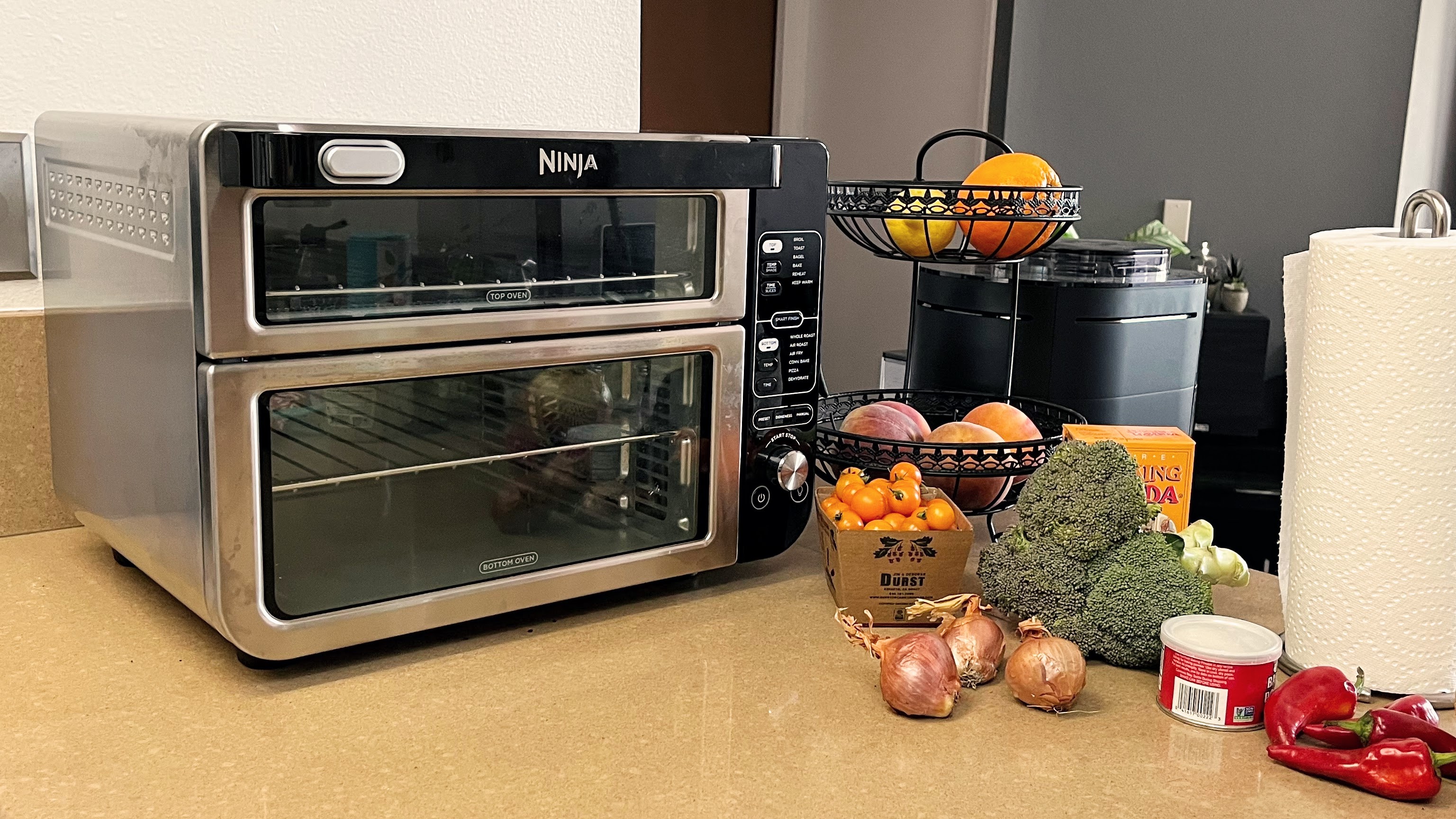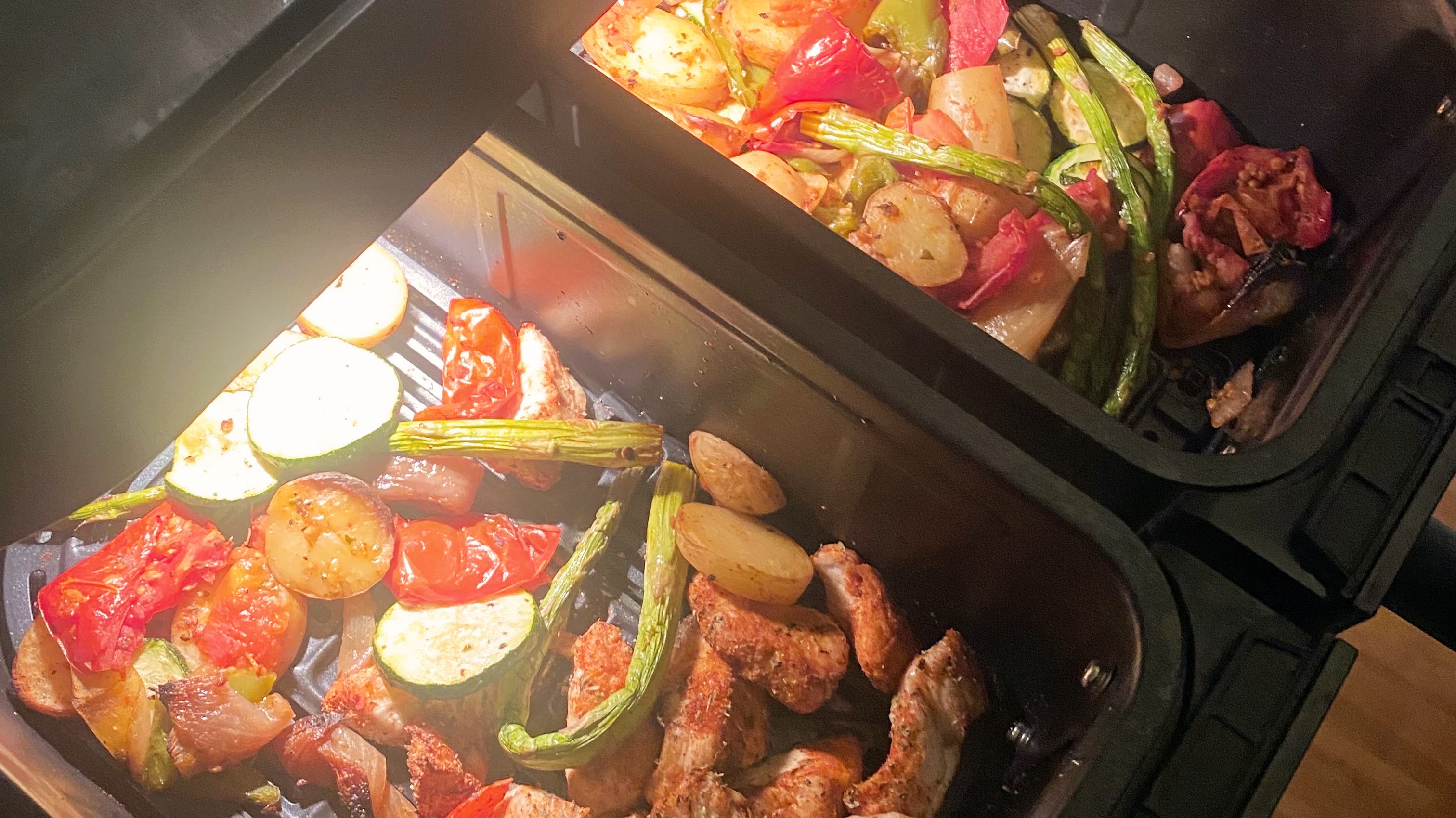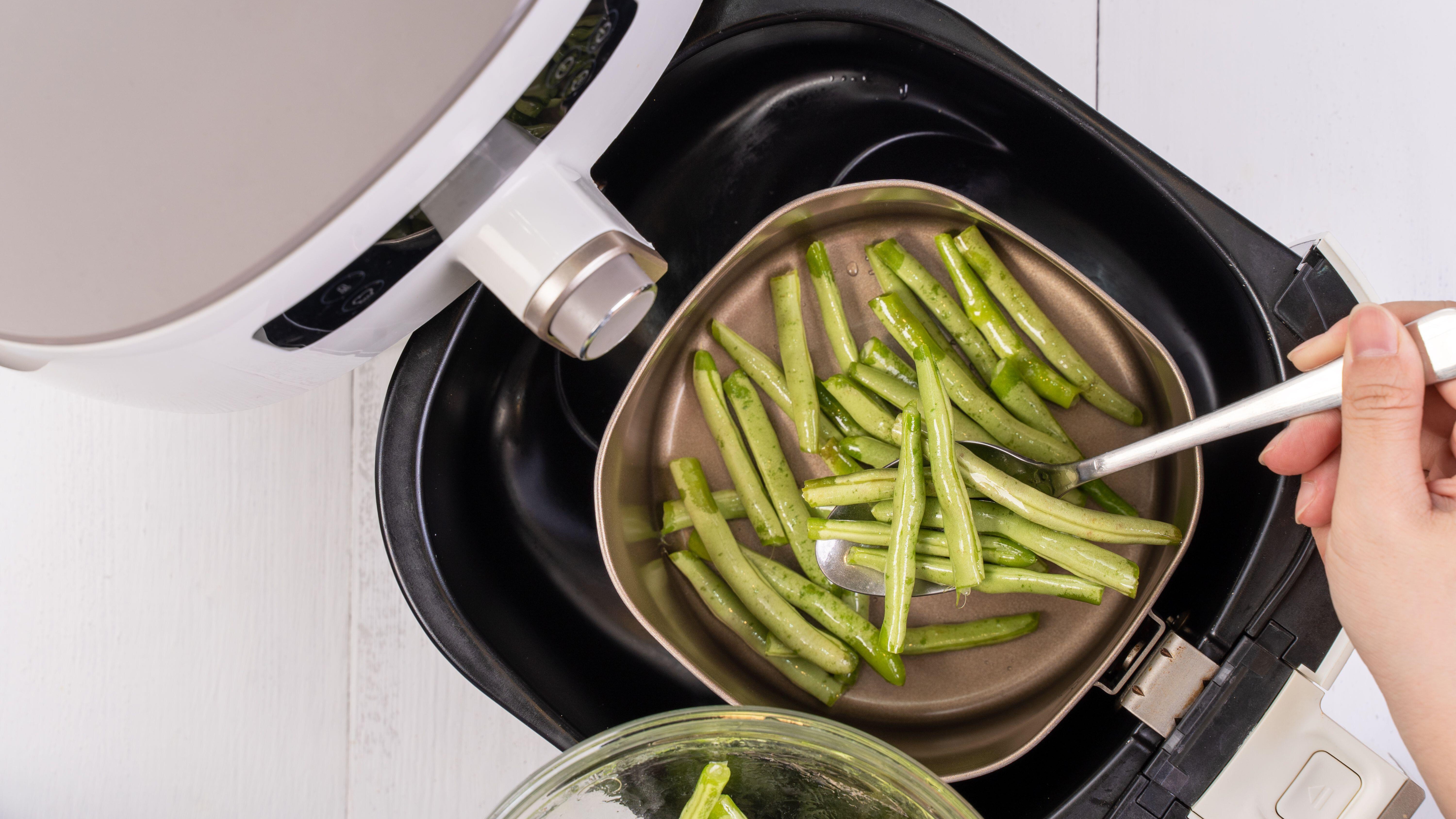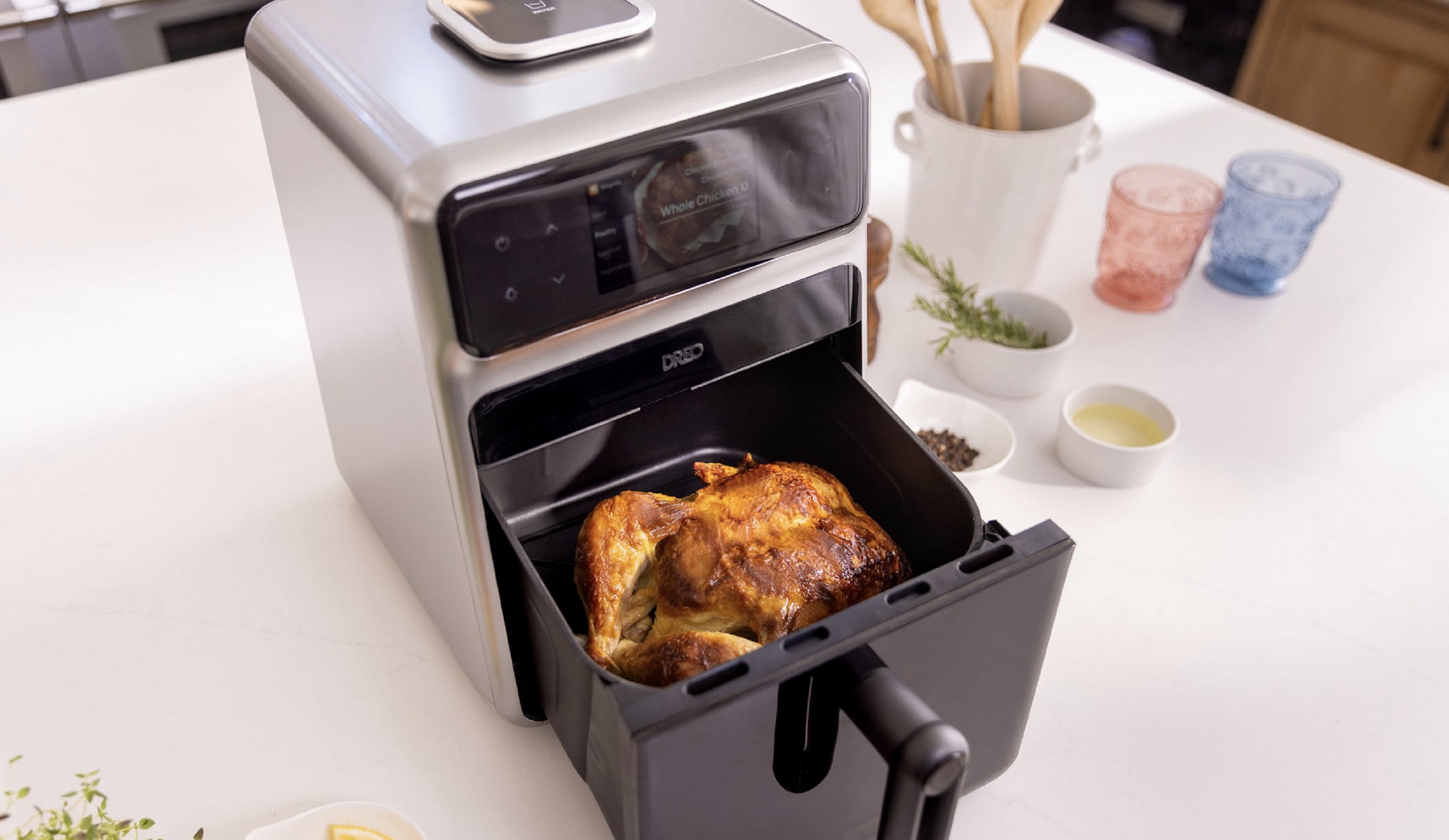Are air fryers healthy? Experts explain whether they're as healthy as they're made out to be
Less oil, fewer calories, higher nutrients

Sign up to receive the latest news, reviews, buying guides and deals direct to your inbox
You are now subscribed
Your newsletter sign-up was successful
Air fryers have proved hugely popular in recent years, especially among people who are looking for healthier ways to enjoy their favorite foods.
This is because the best air fryers are touted as not only having huge benefits to people's lifestyles but also to their diets. Helping them cut back on oil and calories, increasing the versatility of their meals, and enabling them to make healthier choices. But what exactly makes air fryers healthy, and are they really as good for you as the manufacturers claim?
Below we take a look at these claims and the purported health and lifestyle benefits of air fryers. We also debunk some common myths, and get an expert view from Allen Fung, Managing Director of Typhur Inc.
If you're thinking of bringing an air fryer into your kitchen repertoire, learn how to choose an air fryer to make sure you pick the right one.

Allen Fung has more than 15 years of industry experience in cross-border e-commerce and brand building. Allen has built several brands from ground up for both startup and established businesses across a wide number of verticals including consumer-electronics, smart home/kitchen, home theatre, and more.
How do air fryers work?

To understand why air fryers are considered a healthier alternative, it helps to know a little about how they work.
Air fryers work in a similar way to a standard convection oven, just on a smaller scale. A heating element heats the air inside the air fryer to the programmed temperature. A fan circulates this hot air quickly and evenly around the food. Most air fryers come with a basket where the food is placed for cooking and this basket typically has a design that allows the hot air to circulate freely from all angles.
This is not only important for making sure the food is well, and evenly cooked, but it's what helps remove the moisture and leaves the outer coating crispy. Mimicking the crispy skin that you usually only get when deep frying, without using the excess oil.
Sign up to receive the latest news, reviews, buying guides and deals direct to your inbox
Are air fryers healthy?
Reduced oils and fats
"Compared to traditional frying, air frying is healthier," says Fung. "You almost don’t need to add any oil during the cooking process, which greatly reduces the intake of fat." The Typhur Dome Air Fryer claims to cook fries with "95% less fat compared to deep frying", for example. The Ninja Foodi 10 promises to use up to 75% less fat than traditional methods, and Phillips calls its Airfryer XXL "the healthiest way to fry."
Any reduction in dietary fat can have positive impacts on your health. A 20-year study of 49,000 US women found that cutting down on fat is linked with a reduced risk of breast cancer, diabetes, and heart disease by as much as 30%.
This reduction in oil also means using an air fryer can help you lower your calorie intake. Eating more calories than your body needs can cause weight gain and, as the Institute of Medicine (US) Committee on Diet and Health explains: "There is little disagreement that the heavier you are, the greater your risk of having a heart attack.
"People who are 5 to 15% overweight have more than twice the number of deaths from heart attacks as people of average weight. For those who are 25% or more overweight, the number of fatal heart attacks is five times higher than normal."
A study from the National Institutes of Health even found that reducing your fat intake is 68% more effective for weight loss than cutting down on carbs. This is because a single spoonful of oil can add around 126 calories and 14g of fat, on average, depending on the oil or fat you add.
This may seem relatively minimal but the American Heart Association recommends only 5-6% of the calories in your diet should come from saturated fat. If you eat 2,000 calories a day, no more than 120 of them should come from saturated fat, and that equates to around 13 grams per day.

In addition to reducing the amount of oil that is added manually during the air frying process, some air fryers go a step further and remove excess fat from the food itself. The Phillips Airfryer XXL, for example, uses Twin TurboStar technology to create a "tornado of hot air that melts away fat inside food." The fat added for cooking purposes as well as the fat inside the food is drained away into a container at the bottom of the air fryer for easy disposal.
As a counterargument, many of the oils used for cooking contain unsaturated fat, which can have a positive impact on your health when used in moderation. It helps absorb vitamins from food and has even been linked with lowering your risk of cardiovascular disease. It's when the levels of fat and calories become excessive that problems arise.
It should also be noted that the percentage comparisons made by manufacturers are comparing air frying with deep-fat frying or pan frying. Not oven cooking. If you don't already regularly use a deep-fat frier, the fat and calorie savings from using an air fryer will be minimal. Similarly, you could cut down on the amount of oil you use for pan frying and it would have similar impact and health benefits.
Lower risk of undercooked or overcooked food
Beyond lower fat and calorie consumption, air fryers can reduce the risk of eating burnt food or undercooked food thanks to their smaller design, and their precise temperature and timing controls.
Air fryers rarely need to be pre-heated because of the way the air circulates, and the compact nature of the baskets. This means they cook food quickly, evenly, and efficiently, which reduces the chances of over- or undercooking.
Undercooked food can be a source of foodborne illnesses and bacteria, while burnt food or food cooked at extreme temperatures has been linked to higher levels of compounds known as acrylamides. These compounds are produced in certain foods when they're cooked at high temperatures, such as those used in deep-fat frying. Higher levels of acrylamides have been linked with cancers yet one study found that "air-frying reduced acrylamide content by about 90% compared with conventional deep-oil-frying cooking processes."

The precise temperature and timing controls of air fryers take the guesswork out of the cooking process, too. You don't have to turn a dial to the approximate temperature and keep checking on the food until it's ready, as is often the case with frying papns and traditional ovens. Instead, air fryers allow you to pick the exact temperature you need. The Dreo ChefMaker, for example, can be precisely controlled and monitored on an app. It also comes with a Probe Cook mode which will cook your food until its internal temperature reaches the desired, safe temperature.
What's more, air fryer presets have been designed to cook a wide range of foods to perfection and mimic regular frying without any of the downsides. As Fung continues: "Air frying cooks the outside of foods first, which creates a crispy brown coating while still keeping the inside juicy and soft, just like deep-fried foods. However, the coating will be less greasy due to the lower amount of oil used compared to deep frying."
This process further reduces the chances of undercooking your food or having a burned outside and raw middle. Plus, air fryers turn off automatically once a timer ends to avoid you cremating your meal by accident.
Again, if you're not regularly deep frying then the risk is low. What's more, opinion is divided on how much of a risk acrylamides have on human health with Cancer Research claiming there isn’t enough high-quality evidence to show this and, in fact, no "good-quality studies" have shown that acrylamide from food causes cancer in humans.
Fewer nutrients are lost
Buying Guides
Best small air fryers for one person 2024: our top compact air fryers, tested by experts
Reviews
Midea MAD53109APK 5.5QT Air Fryer review: a small, simple, and highly effective option
Toshiba AF-74CSROUS 7.7-Quart Air Fryer review: a smart and roomy air fryer
Hamilton Beach 11.6qt Digital Hot Air Fryer review: quickly and evenly cook your favorite foods
Typhur Dome AF03 Air Fryer review: a countertop air fryer capable of cooking a 12-inch pizza
All of this is before you factor in the benefits that the more efficient cooking times, temperatures, and techniques of air fryers can have on the nutritional values of food. Heat degrades certain vitamins so, thanks to the shorter cooking times of air fryers, fewer nutrients are lost.
Air frying vegetables can also help retain more of their vitamins and minerals compared to boiling, too. This is particularly the case with broccoli, zucchini, spinach, peas, and other vegetables that are high in water-soluble vitamins and minerals, like B vitamins, vitamin C, and potassium. When boiled, these nutrients can leach out into the cooking water which is then drained away. Yet when they're cooked in an air fryer these nutrients and their antioxidant effects remain more stable.
Versatility helps you make healthy choices
And finally, the versatility and ease of use of an air fryer can have a positive impact on the types of food you make. The vast and growing library of online air fryer recipes makes it easy to find healthy recipes at the press of a button.
I'd never thought to make air-fried chickpeas before and now they're my go-to, high-protein snack. My children are surprising fans of air-fried green beans, having refused to eat them before, and I even managed to get them to eat pumpkin over Halloween by baking it in the air fryer.
My love for my air fryer, coupled with the novelty of looking for different recipes I can try has meant that my diet has become more varied and healthy by default.
Final thoughts
Air fryers come with a host of health benefits from helping to reduce your fat and calorie intake to retaining more nutrients in vegetables. Yet, while these benefits can have a positive impact, they're not going to be the solution to adopting a more healthy lifestyle on their own.

Victoria Woollaston, with nearly 20 years of experience, has reviewed gadgets, beauty tech, and household appliances for WIRED, TechRadar, and Expert Reviews. She specializes in critiquing coffee makers and small appliances for Top Ten Reviews. Victoria is also the founder and editor of inclusive beauty and grooming sites mamabella and MBman.
